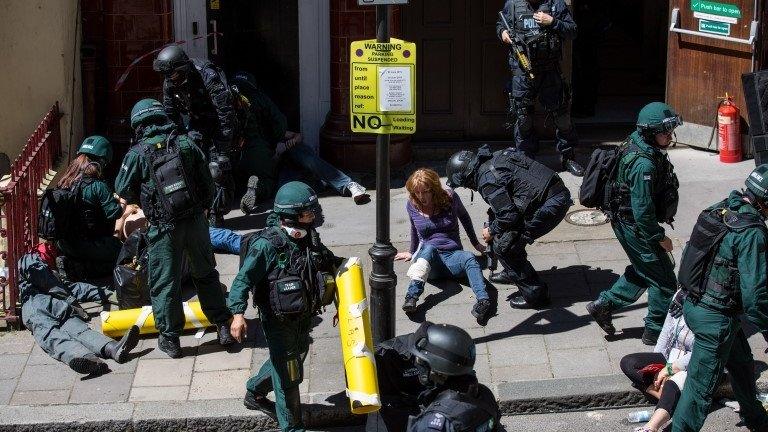UK terror police chief: Fifty attacks stopped since 7/7
- Published
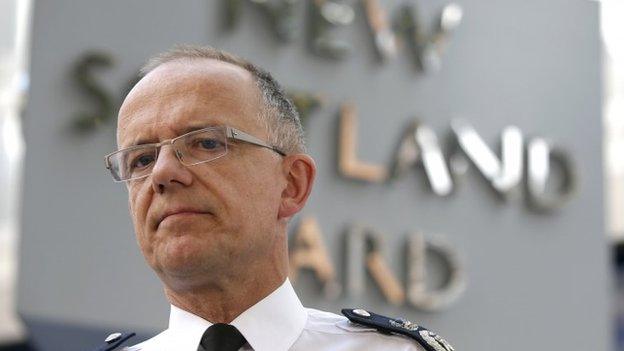
Mark Rowley says about 50 potential terror attacks have been stopped since 7 July 2005
The UK's most senior counter-terrorism police officer has said up to 50 deadly terror attacks have been stopped since the 7 July bombings 10 years ago.
On 7 July 2005, 52 people died when four bombs were detonated in London.
The Met's Assistant Commissioner, Mark Rowley, said the plots had been different, but all could have resulted in fatalities.
He also accused the so-called Islamic State (IS) of trying to create a "wicked" cult.
Mr Rowley said: "Fifty is the order of the number of plots that have been confronted over the past decade.
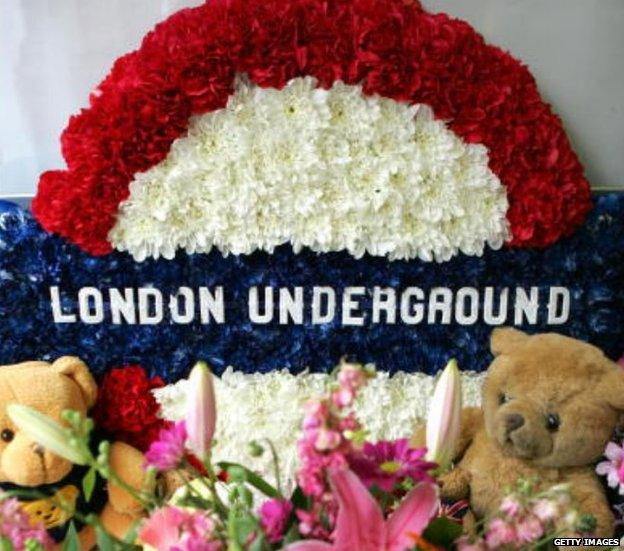
A total of 52 people were killed when four bombs were detonated in London 10 years ago
"The plots are of different scales and sizes. You get the grand, complex plans that are organized often from overseas down to the lone actor."
The international terror threat level in the UK has been "severe" - meaning an attack is "highly likely" - since last August after IS made big gains in parts of Syria and Iraq.
Mr Rowley said the profile of would-be attackers was changing because IS was creating a "wicked" cult to appeal to younger and vulnerable members of society, often grooming them over the internet.
He said: "Rather than running a secret organisation which is what terrorist groups have done before, they're trying to create a cult.
"They're trying to create a wicked following of people who will act in their name. And some of that is about them reaching out to the vulnerable.
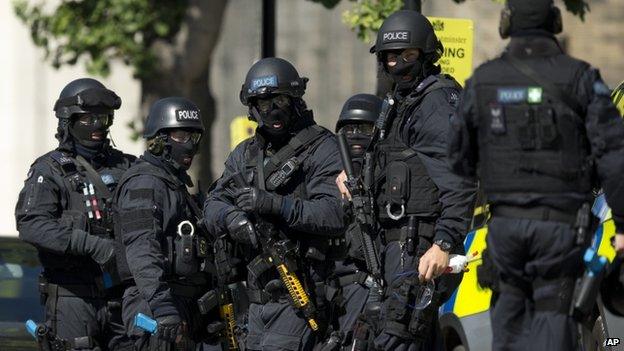
A recent counter-terrorism exercise was held in London involving more than 1,000 police officers
"We're seeing more young people being drawn into it; we're seeing people with mental health issues."
Mr Rowley said the extent of the threat facing the UK was "significant" and Londoners would find the daily intelligence he views to be "concerning".
But he insisted the authorities had the resources and skills to combat the threats.
"I think anyone seeing the intelligence we're seeing on a daily basis would be concerned," he said.
"I think if you look at it alongside the capabilities we've got today there's no cause to be frightened, but people would be concerned.
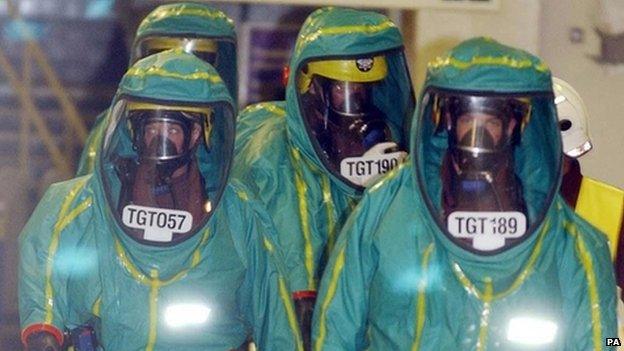
Emergency exercises are regularly carried out by police and other agencies
"The number of arrests we've been making has escalated quite dramatically - an arrest [for suspected terrorism offences] one-a-day pretty much, which is much higher than ever before."
Asked if he thought London was now facing an "unprecedented" terror threat, he said: "Terrorist threats have gone up and down over the years.
"If we look at some of the challenges we faced from Irish threats, I think unprecedented might be the wrong word.
"We're facing a threat of a significant proportion that presents some real challenges to us and it's of a type and a nature we haven't seen before."
Mr Rowley has called on communities to help spot signs of radicalisation so that police can intercept them before they develop.
- Published30 June 2015
